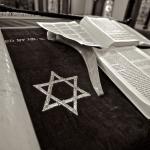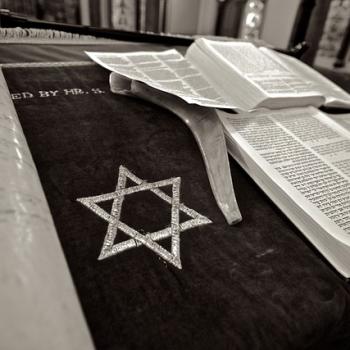Mending a Broken Family: Finding Unity Amidst Diversity
“ואָֽהַבְתָּ֥ לְרֵעֲךָ֖ כָּמ֑וֹךָ” – “Love your neighbor as yourself.” (Leviticus 19:18)
*”הִנֵּה מַה־טּוֹב וּמַה־נָּעִים שֶׁבֶת אַחִים גַּם־יָ֝חַ֗ד” – “Behold, how good and pleasant it is when brothers dwell in unity!” (Psalms 133:1)
The Fragmented Family
In an ideal world, families are the foundation of love, unity, and support. Yet, the reality often falls short of this vision. Broken families are not uncommon, and this issue transcends professional observations. As a school chaplain serving a diverse community, I’ve witnessed the fragmentation of families. Moreover, my own family, though closely linked in ancestral roots, struggles to spend quality time together. We are not alone in this experience. Often, families face a divide that deepens when the elders—the patriarchs and matriarchs—pass away.
Navigating Political and Ideological Divides
Today, amidst global political crises, what used to be spirited debates around the Kiddush table have transformed into ideological battlefields. Differences in political affiliations and worldviews have led to estranged family members “ghosting” each other. We must remember that Judaism is not a monolithic belief system. It accommodates a wide spectrum of beliefs, dogmas, and orthodoxies, which are expressed in unique ways compared to our Christian and Islamic counterparts. Within one family, you may find members who are orthodox, reform, Christian, atheist, or something entirely different.
Respecting Differences in Belief
The question arises: Can we respect each other’s views while maintaining family bonds? What if our preconceived notions of family members prevent us from truly knowing them? As a 36-year-old married father, I’ve come to realize that family is the pathway to happiness. However, this assumes that everyone is capable of unconditional love—an ideal that is not always realized. In a world that judges us by our contributions in terms of products or services, our families should value us simply for being part of their lives.
The Torah’s Message of Forgiveness
“וְנָתַתִּי לָכֶם לֵב בָּשָׂר וְרוּחַ חֲדָשָׁה אֶתֵּן בְּקִרְבְּכֶם וַהֲסִרֹתִי אֶת־לֵב הָאֶבֶן מִבְּשַׂרְכֶם וְנָתַתִּי לָכֶם לֵב בָּשָׂר.” – “And I will give you a new heart, and a new spirit I will put within you. And I will remove the heart of stone from your flesh and give you a heart of flesh.”* (Ezekiel 36:26)
The Torah teaches us about forgiveness and the transformative power of change. Resentment and grudges weigh us down and prevent true healing. We must first learn to forgive, for it is through forgiveness that we become eligible for forgiveness ourselves. Apologizing is never easy, but sometimes we must apologize not because we feel guilty for someone else’s pain, but because we show compassion and empathy for those we hold dear.
Embracing the Role of Family
Our family plays a unique role in our lives. It is within the family that we learn the art of forgiveness, compassion, and understanding. We don’t apologize because we are at fault for their pain, but because we do not want our loved ones to experience pain in the first place. Family is a sanctuary where we find solace, guidance, and unwavering support.
The Pathway to Happiness: Giving Back
While I am a millennial, still on the journey to the pinnacle of maturity, I have come to understand that true happiness stems from being a blessing to others. Giving is the real gift, encompassing not just monetary contributions but also the gift of time and genuine interest. In a culture that often prioritizes individualism, teaching us that personal happiness is the greatest form of contentment, we must remember that this is contrary to the Torah’s teachings. We are blessed and reprimanded as a group, and we bear a collective responsibility for each other, especially within our families—those intricately designed bonds chosen by the Creator who breathed light and Creation into existence.












